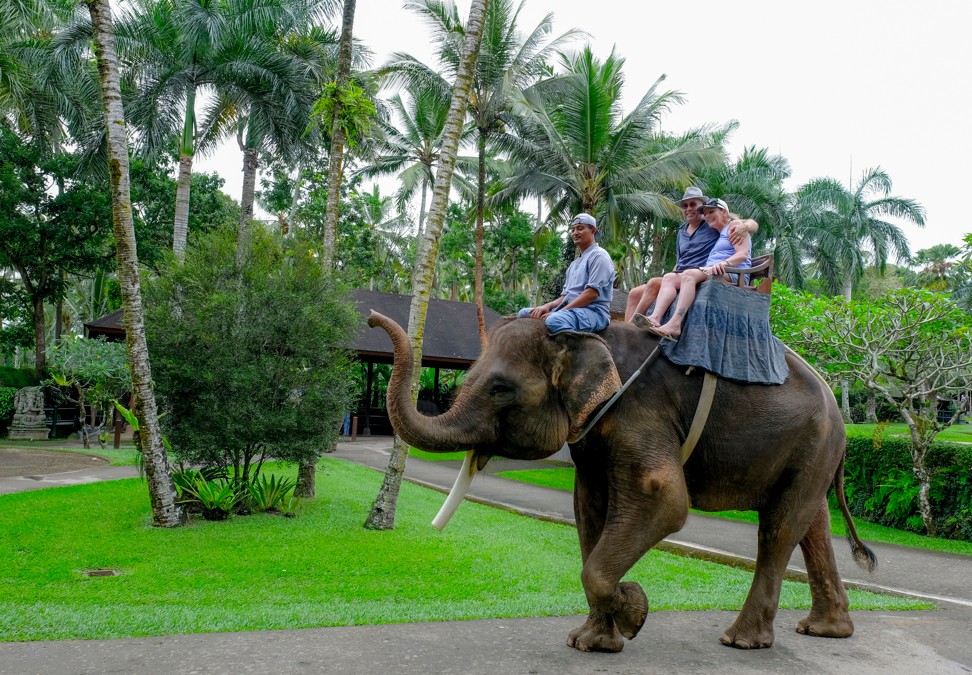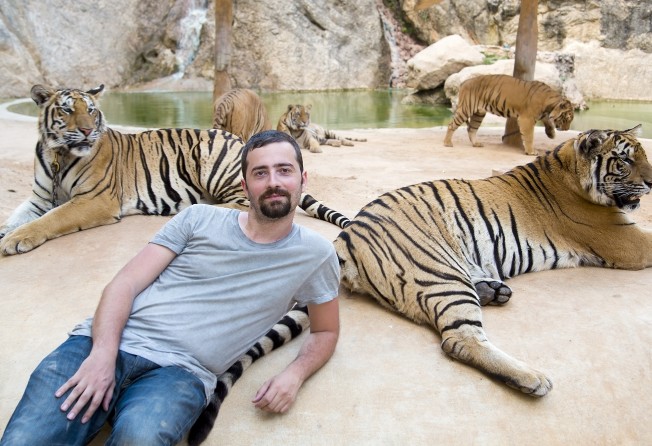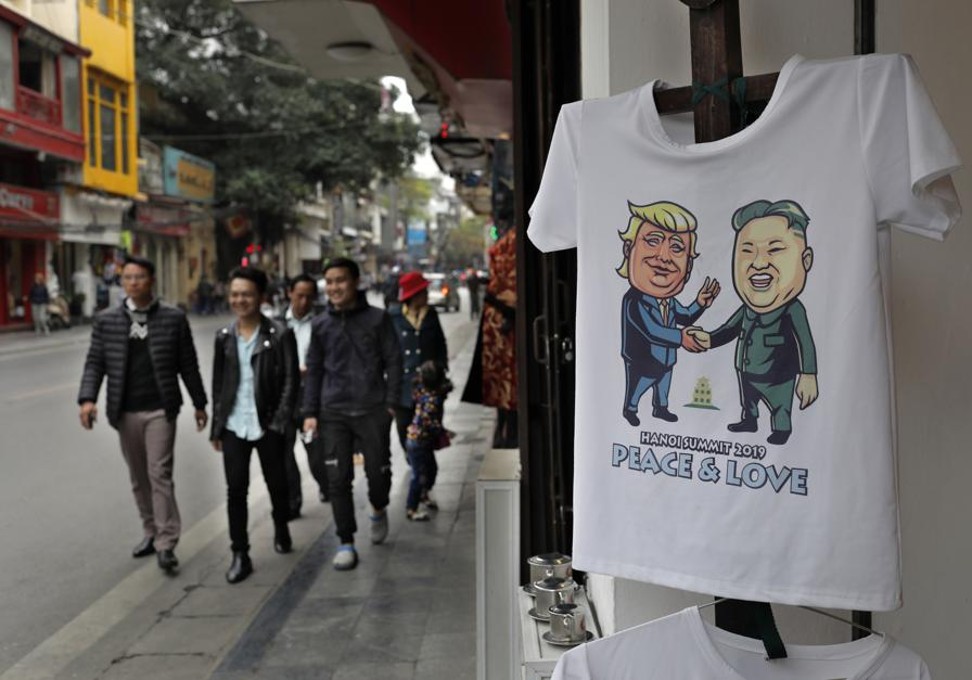
Is social media to blame for unethical wildlife tourism? For Asia’s endangered animals, internet fame has a dark side
- The social-media-fuelled experience economy has helped legitimise using exotic animals as selfie props
- Environmental groups call for education to raise awareness of the ways these creatures are trained and treated

Picture this: a wide-eyed lemur/cuddly koala/listless large cat occupies the same frame as a smirking tourist, whose expression lies somewhere between self-satisfied and panic-stricken; might this ostensibly wild animal surrender to primal instincts and react to its captor accordingly?
Beneath said image, comments accumulate. Many extol the creature’s cuteness, some express a desire to possess it as a pet, most ignore the fact that the animal is kept in captivity exclusively for the benefit of selfie-serving travellers.
Except, according to an Instagram policy that came into effect in December 2017, we should no longer be seeing these images. When it was announced, National Geographic reported that “the social network will now alert users to behaviour that harms wildlife”. Searches or clicks on hashtags such as “slothselfie” elicit the following warning on the platform: “Protect Wildlife on Instagram. Animal abuse and the sale of endangered animals or their parts is not allowed on Instagram. You are searching for a hashtag that may be associated with posts that encourage harmful behaviour to animals or the environment.”
At the time, Instagram spokeswoman Emily Cain told the magazine, “I think it’s important for the community right now to be more aware. We’re trying to do our part to educate them.”
And it’s not just sloths. Anyone searching for #koalaselfie, #lionselfie, #tigerselfie, #lemurselfie and #elephantselfie will be met with the same message, although users wishing to peruse posts with those tags can still do so. The alert can also be easily evaded by adding an “s”, and a recent search for the hashtag “elephantselfies”, while not affixed to as many images, found accounts encouraging travellers to feed and bathe elephants on the Indonesian island of Bali, which is not known for its exemplary treatment of animals.
The burden of this issue is by no means Instagram’s to bear alone; rather, accountability lies with the entire social-media-fuelled experience economy.
The concept of the “experience economy” first emerged in 1998, in the Harvard Business Review. “While prior economic offerings – commodities, goods, and services – are external to the buyer, experiences are inherently personal,” state writers B. Joseph Pine II and James H. Gilmore. And who love experiences? Millennials, that’s who.

Millennials (although not the only braggadocious generation) sprinkle their experiences like confetti across social media, evangelising the act of, say, stroking a captive-bred “tame” tiger in Thailand or balancing on the back of an elephant in Indonesia. But what these images filter out, whether intentionally or not, are the conditions of the animals’ confinement. According to international non-profit organisation World Animal Protection, “Hundreds of thousands of wild animals across the world are taken away from natural habitats, forced into captivity and subjected to abuse, both mentally and physically, in the name of entertainment and profit.”
As long as the demand for unethical wildlife tourism (anything that brings wild animals into contact with humans) remains, so too will the industry. And while we worship at the altar of what Kevin Roose, technology columnist for The New York Times, calls the “phone-industrial complex”, which “has convinced us that a six-inch glass-and-steel rectangle is the ideal conduit for worldly experiences”, documenting those experiences in real-time to an indifferent audience in exchange for “likes”, we drive that demand.
Thankfully, there are establishments that focus on changing attitudes, rehabilitating rescued animals and returning once-captive beasts to protected environments if it is not possible to reintroduce them to the wild, although travellers wishing to show their support should do their homework; just because somewhere calls itself a sanctuary, doesn’t mean it is.
As for those in search of selfies? Animals can be ethically observed from a distance, through binoculars or with your own eyes, rather than in “a six-inch glass-and-steel rectangle”.
Still set on capturing you and a furry friend on camera? Well, there’s a filter for that.
US approves direct flights between America and Vietnam

As Vietnam prepares to host the second summit between United States President Donald Trump and North Korean leader Kim Jong-un, Hanoi is celebrating successful bilateral relations of another kind. America’s Federal Aviation Administration has granted the Southeast Asian nation a category 1 rating, which means that airlines will be able to establish direct routes between the two countries.
New carrier Bamboo Airways has made its US intentions clear, and plans to buy 10 new Boeing 787 aircraft to provide the service, according to a Reuters report, despite having been off the ground for less than two months.
“Direct flights between Vietnam and the US will not only push tourism activities, but also further facilitate bilateral trade and investment,” said Trinh Van Quyet, Bamboo’s chairman, to the news organisation.
Those already in the Vietnamese capital for the summit can enjoy a number of summit-related souvenirs and experiences, from novelty T-shirts to free haircuts in the style of your favourite despot. A word of warning against resembling either of the bombastic heads of state too closely, though. Hong Kong’s own Howard X, best known as a Kim impersonator, has been deported from the country, according to AFP. “I was born with a face looking like Kim Jong-un, that’s the real crime,” he told reporters.
Trump lookalike Russell White has been allowed to stay in Hanoi, but was asked to stop stepping out “in costume”. So, put that orange face paint away, Russell!
Singapore’s Sentosa – the ‘next Bali’?
Singapore’s “billionaire enclave” and host of the inaugural Trump-Kim summit last June, Sentosa has been neglected, according to Kwek Leng Beng, executive chairman of property developer City Developments, who went on to say that the island resort should be repositioned as a “new Bali”.
A February 22 report by Bloomberg noted that although Sentosa and Bali share a similar climate, comparable high-end hospitality options and a water park, that is where the similarities end. Sentosa lacks Bali’s mountainous topography, natural beauty, surfing beaches, cultural clout and size.
Kwek, however, has unwavering faith that the erstwhile British military base and Japanese prisoner-of-war camp has much to offer that it’s celebrated Indonesian rival does not. “You go to Bali now, it’s very congested,” he said. “It’s got volcanoes, weather problems, flooding problems and traffic problems. Why is it so popular?”
Perhaps a Sentosa-set sequel to Eat, Pray, Love could redress the perceived imbalance?
Until that’s published, we know where we’d rather go.